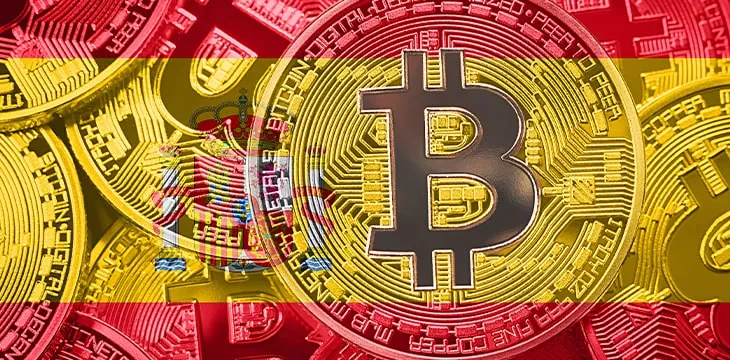|
Getting your Trinity Audio player ready...
|
The Spanish Treasury has unveiled a new framework for the taxation of digital currencies, which includes new tax reporting obligations for digital asset holders and service providers that some market members consider too strict.
Per the new rules published by the Ministry of Treasury, investors will be obligated to disclose all their digital currency holdings, as well as their value in euro. However, the new rule only applies to holdings of over €50,000 ($52,854).
Service providers such as exchanges and custody services must also report transaction details to the tax regulator. They are to turn in details such as the origin and destination addresses of transacted assets, along with the type of digital currencies and their associated value.
The proposal is significantly different from the previous framework that only required holders to declare the earnings of their trading. If the legislation is approved, it is expected to come into force in 2023 but will apply to operations in 2022.
Spain’s digital currency regulations so far
Spain has long been making efforts to make robust digital assets regulations. Its previous comprehensive digital assets regulation proposal called Model 720 was declared illegal by the European Union. The tax framework will be part of a new model called Model 721.
Meanwhile, the country has several fragmented digital assets regulations in place. The Bank of Spain has rules for the registration of digital assets firms in place that has so far onboarded 17 firms. However, several of the industry’s big names are yet to register.
The central bank also requires financial institutions and banks that deal with digital assets and blockchain technology to present a three-year digital currency plan. The bank stated that the requirement is for its research purposes.
Earlier this year, Reuters also reported that Spain had banned all forms of advertising related to digital currencies. The directive tasked the stock market supervisor with powers to authorize any mass campaigns and ensure that investors are given disclaimers of the risky nature of digital assets.
Meanwhile, Spain is not the only European country to clarify its digital currency taxation regime. Germany, this year, introduced a tax regime where digital assets held for more than one year are not eligible for capital gains tax. Similarly, Russian lawmakers have also recently made proposals on how to tax digital assets.
Watch: The BSV Global Blockchain Convention presentation, BSV On-chain Ecosystem Development in Europe
https://www.youtube.com/watch?v=ggbZ8YedpBE&t=25004s

 07-04-2025
07-04-2025 





